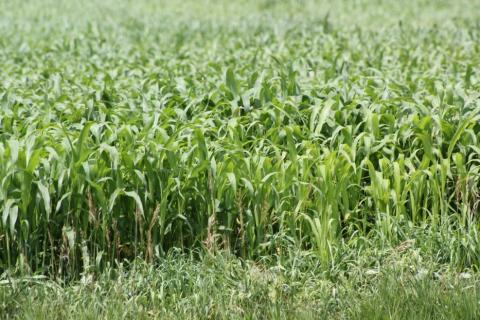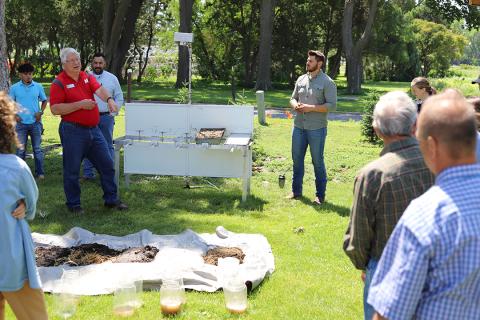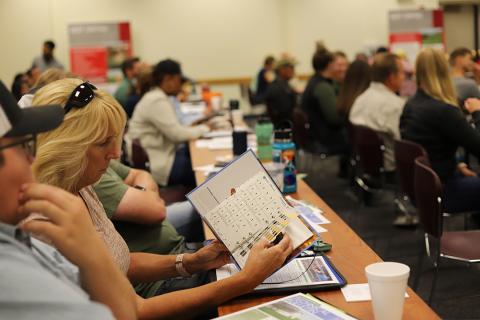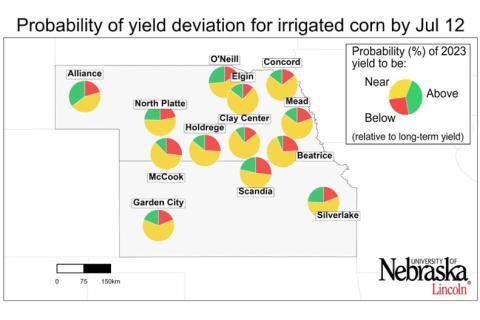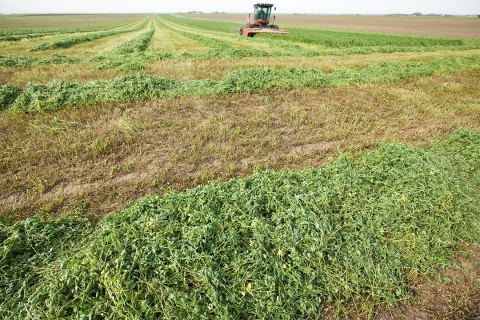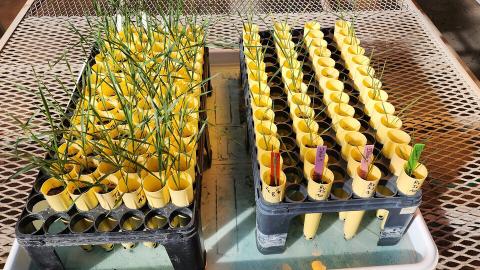
Morocco Collaboration to Boost Wheat Research, Grad Study Opportunities
July 13, 2023
UNL researchers involved in a new international collaboration with Morocco hope to boost wheat disease research and strengthen prevention strategies against fungus-enabled wheat diseases.
Annual Forage Options for July or August Planting
July 13, 2023
UNL Beef provides information on forage species selection and key management considerations based on desired use.
Nebraska to Host Cellular and Molecular Biology of the Soybean Conference
July 13, 2023
Industry experts from organizations across the U.S. are set to present their research insights on advancements in soybean genetics during the Aug. 10-13 conference.
Don’t Miss UNL’s Haskell Ag Lab Soil Health School
July 13, 2023
The final 2023 Nebraska Soil Health School will be Aug. 1-2, featuring numerous speakers and hands-on activities, and free attendance for all participants.
Nebraska Soil Health School Connects Farmers, Researchers, Conservationists and Ag Professionals
July 13, 2023
Attendees of the second Nebraska Soil Health School in North Platte heard the latest on fundamental soil health principles and research, and viewed numerous demos by UNL and NRCS experts.
2023 Corn Yield Forecasts as of July 13
July 12, 2023
Although it is still too early to make strong inferences about end-of-season yields for irrigated corn, there is a relatively high probability for near-average yields for a majority of sites.
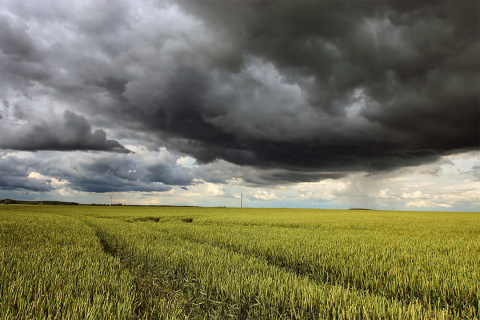
Crop Progress: Crop Conditions Improve Following Widespread Rain
July 10, 2023
Nebraska crop conditions and topsoil moisture improved slightly across the board after last week's rainfall, and crop growth progressed near average pace for most crops.
Pasture and Forage Minute: Managing Alfalfa Windows, Grazing Summer Annual Forages and Water Quality
July 10, 2023
Management strategies for curing alfalfa windrows in adverse weather conditions, grazing sudangrass and sorghum-sudan hybrids safely, and water quality issues for livestock on pasture.

